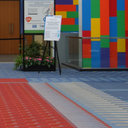Urinary rubidium in breast cancers.
Fjalë kyçe
Abstrakt
BACKGROUND
Rubidium is a putative anticancer agent, but no studies have been performed on the association of rubidium levels in biospecimen with breast cancer risk and the potential as a biomarker of the risk assessment.
METHODS
Survey data and urine specimens were collected from 240 women with incident invasive breast cancer before their treatments and 246 age-matched female controls between October 2009 and July 2010. Urinary concentrations of rubidium were determined by inductively coupled plasma mass spectrometry.
RESULTS
Creatinine-adjusted levels [median (25th, 75th) ug/g] of rubidium in cases [2253.01(1606.81, 3110.46)] were significantly lower than that in the controls [2921.85 (2367.94, 4142.04)]. After adjustment for potential risk factors of breast cancer, women in the second and highest tertile decreased risk of breast cancer in a dose-dependent manner as compared with those in the lowest tertile [ORs and 95% CIs were 0.45 (0.27-0.73) and 0.22 (0.13-0.38), respectively]. The area under the receive-operating-characteristic curve for urinary rubidium level was 0.697 (95% CI: 0.650-0.743).
CONCLUSIONS
The urinary levels of rubidium were significantly and inversely associated with risk of breast cancer and had potential to be a biomarker for breast cancer risk assessment.







